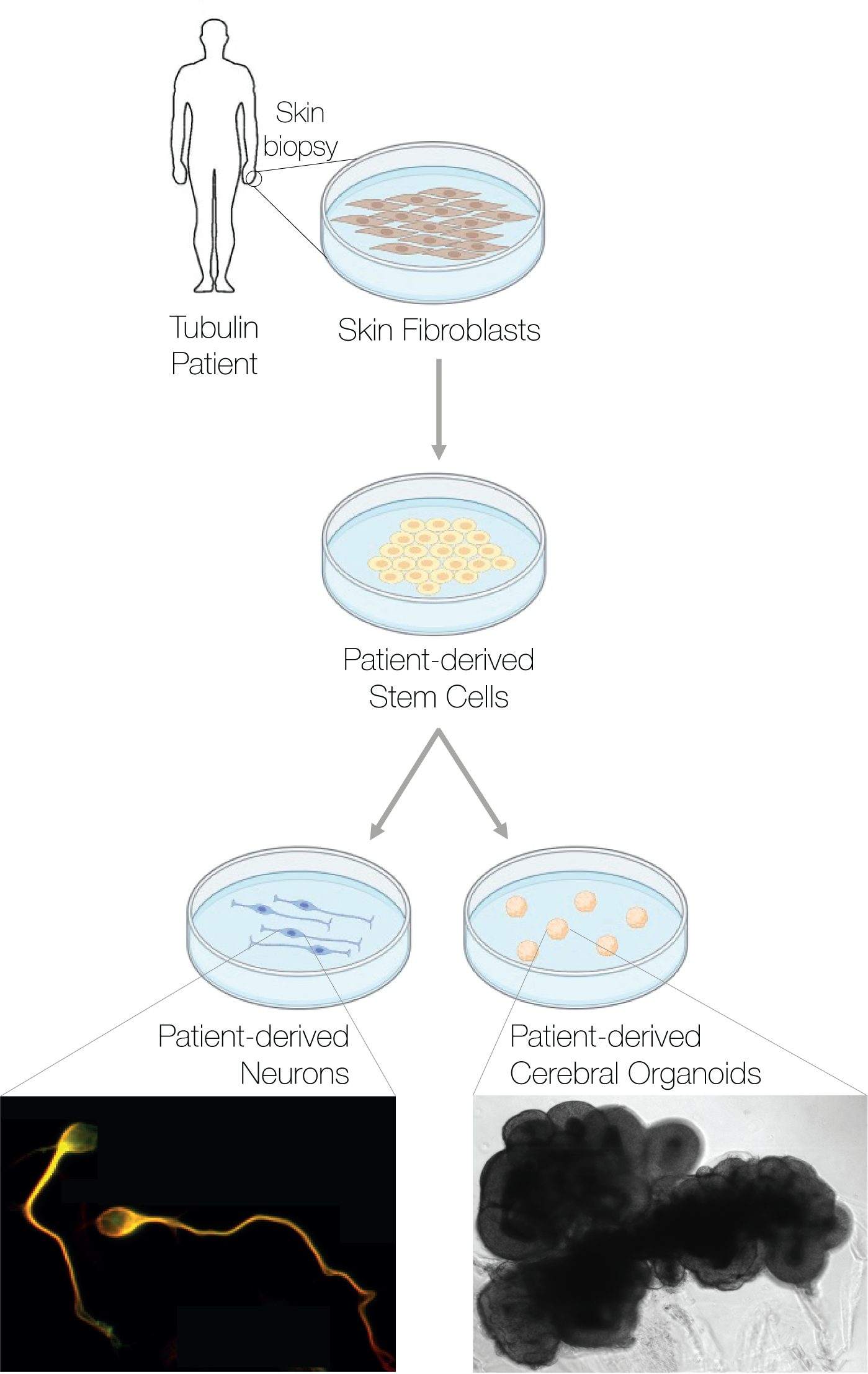Tubulin Biobank
Tubulin Biobank
Due to the limited accessibility of the human brain during embryonic development, it is very difficult to study the precise ways tubulin mutations cause disease. To solve this issue we are using stem cell-based laboratory techniques to study the consequences of these mutations on tubulin & microtubule function, as well as the knock-on effects these may have on correct brain development.
We are collecting cellular samples (usually a small piece of skin but sometimes blood cells) from individuals carrying tubulin gene mutations. These can be converted to stem cells in a laboratory, and, from these stem cells, it is possible to generate brain cells (e.g., neurons and neuron-producing cells).
Every cell in the body should carry the same genetic information and, therefore, brain cells generated from patient stem cells will also carry the disease-causing tubulin gene mutation. Importantly, this would mean that, by studying these patient-derived brain cells (e.g., under a powerful microscope), we will get a valuable and otherwise unseen window into the ways by which these mutations act to cause disease.

